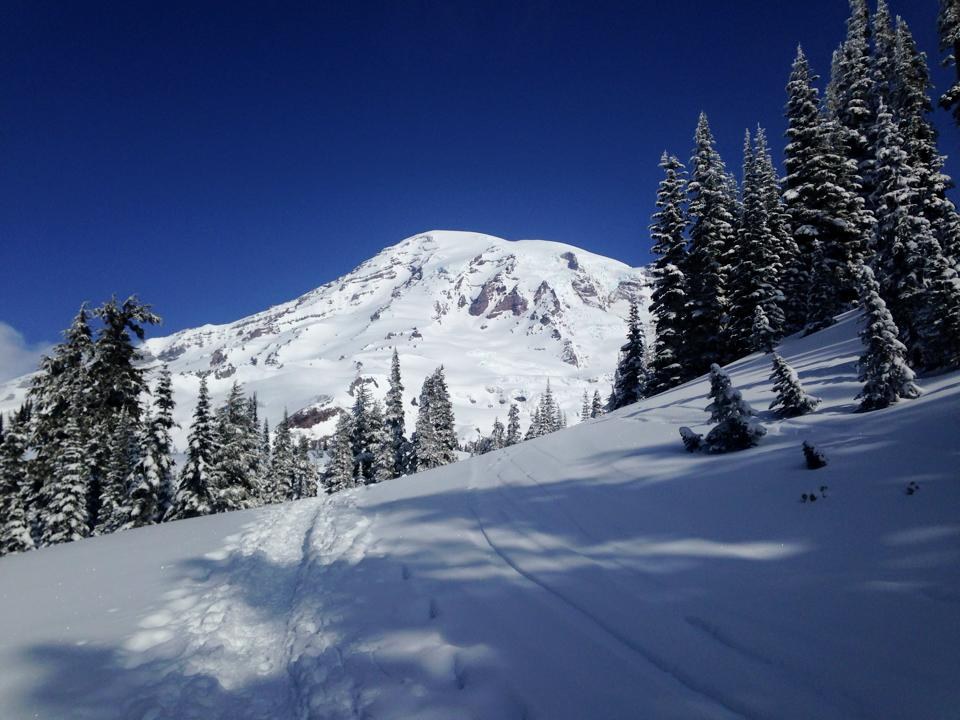
After a great day out in the snow, it can be easy to let your guard down once you start getting close to the parking lot. Here are some tips to stay safe:
Incident Report
Last winter, a pair from Tacoma set off from the Paradise lot at Mt. Rainier National Park to ski and climb up to Gibraltar Ledges. Both were skilled skiers. They had successfully reached the ledges without incident - their main objective of the outing - and were almost back to the car. Skiing through the relatively flat, easy terrain, one skier suddenly fell, his left ski submarining into the snow and awkwardly twisting his lower leg.
Close to the Paradise lodge, the team was able to get assistance from the NPS staff to get the injured skier to the car. The skier went to the hospital and was found to have fractured his fibula.
Lessons Learned
It's hard to know exactly what went wrong in this incident. Since they were so close to the car, there was not a very in-depth report. It could have been fatigue from the long day, it could have been a gear failure, or it could have been the two were chatting about plans for dinner and the skier didn't see a feature in the snow - really it could have been any number of things.
The point I am trying to make is that it can be easy to get a case of "back to the barn syndrome" once you get close to the parking lot. Once we "see the barn" (the parking lot in this case, but it could just as well be the trail on a technical climb or the dock or beach on a boating trip), it's easy to become more relaxed. We tend to be more "tuned in" to what's going on when we're in the heat of the moment - the crux of the trip. But once we perceive to be out of the realm of danger, our guard slips and we're less cautious and focused. We are both mentally and physically tired from the day's adventures. It is this phase of the trip - on the descent or after the main objective has been achieved - that the majority of mountaineering accidents happen. A climb is only half-way completed when we reach the summit - we still have to get back down.
As I wrote, it's hard to know what exactly went wrong in the case of this skier. He could have been focused on the skiing and just hit a bad patch of snow and lost control. It just goes to show you that accidents can happen anywhere out there. Nothing we do will completely avoid all danger, but if we stay alert and focused all the way back, then that will help lessen the chances of something happening.
 James Pierson
James Pierson